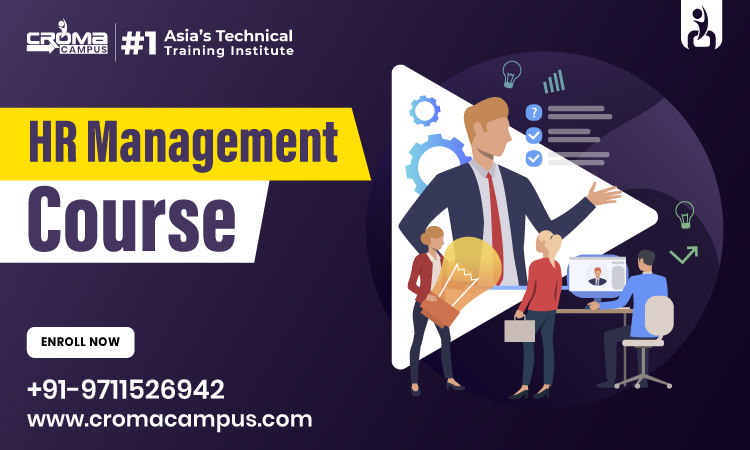Introduction
In the field of the modern business world, organizations are increasingly recognizing the key role of human resources in shaping their success. So, strategic Human Resource Management (HRM) has emerged as a critical approach for businesses aiming to build a high-performance culture. Therefore, this strategic perspective involves aligning HR practices with overall organizational goals to maximize employee performance. And it consequently, drives business success. So, this is how they contribute to the development of a high-performance culture within an organization. Hence, you can pursue an HR Generalist Course if you are looking ahead to work in this domain.
Responsibilities of an HR
Aligning HR Strategy with Organizational Goals
Strategic HR Management begins with a deep understanding of an organization’s mission, vision, and strategic objectives. Moreover, HR professionals must work collaboratively with top management to ensure that HR strategies are aligned with the overall business strategy. Hence, HR becomes an essential part of the decision-making process. Thus, contributing to the achievement of organizational goals. However, the strategic goal of an organization is to expand its market share through innovation. So, HR can focus on talent acquisition and development strategies that emphasize creativity, critical thinking, and adaptability. Therefore, this alignment ensures that the workforce possesses the skills and mindset necessary to contribute effectively to the organization’s strategic objectives.
Talent Acquisition and Retention
Building a high-performance culture requires attracting and maintaining top talent. So, strategic HRM emphasizes the importance of not only recruiting individuals with the right skills and qualifications but also those who align with the organization’s values and culture. Therefore, this involves developing a strong employer brand that communicates the organization’s unique culture and values. Hence, this makes it an attractive workplace for high-performing individuals. Moreover, retention strategies play an essential role in sustaining a high-performance culture. Therefore, employee engagement initiatives, career development opportunities, and competitive compensation packages contribute to employee satisfaction and loyalty. Moreover, when employees feel appreciated and aligned with the organization’s goals. So, they are more likely to invest their skills and efforts in achieving exceptional results.
Employee Development and Training
A high-performance culture flourishes on continuous learning and development. Hence, strategic HR Management places a strong emphasis on employee training and development programs. So, these initiatives not only enhance individual skills but also contribute to the overall growth and adaptability of the organization. Therefore, by identifying skills gaps and providing relevant training, HR ensures that employees are equipped with the tools and knowledge needed to excel in their roles. Furthermore, this proactive approach not only improves performance but also promotes a culture of innovation and agility, vital components of a high-performance organization.
Performance Management and Feedback
Traditional performance reviews are evolving into more dynamic and continuous processes in the field of Strategic HR Management. Therefore, regular feedback and performance discussions are essential for employees to understand their strengths, and areas for improvement. Also, how their contributions align with organizational objectives.
So, a strategic approach to performance management involves setting clear expectations. Thus, providing constructive feedback, and aligning individual goals with organizational goals. Moreover, this not only motivates employees but also enables the identification of high-potential individuals who can be groomed for leadership roles. Further, it contributes to the sustainability of a high-performance culture.
Cultivating a Positive Work Environment
The workplace environment significantly influences employee performance and satisfaction. Moreover, strategic HR Management involves creating a positive and inclusive work culture that fosters collaboration, creativity, and open communication. Hence, by promoting a culture of trust and transparency, HR contributes to higher levels of employee engagement and a sense of belonging.
In addition, initiatives such as flexible work arrangements, wellness programs, and recognition schemes enhance the overall employee experience. Moreover, a positive work environment not only attracts top talent but also plays an important role in retaining high-performing individuals. So, it creates a virtuous cycle that supports the development of a high-performance culture.
Leveraging Technology for HR Excellence
Strategic HR Management leverages technology to streamline HR processes and enhance decision-making. As a result, HR analytics and data-driven insights enable HR professionals to make informed decisions regarding talent acquisition, performance management, and workforce planning. So, by utilizing technology, organizations can optimize HR practices. Thus, ensuring that they are aligned with strategic goals and contributing to the cultivation of a high-performance culture.
Conclusion
Strategic HR Management helps to build a high-performance culture within organizations. Hence, one should also keep the HR Analytics Course as an option to enter this domain. So, by aligning HR strategies with overall business objectives, and focusing on talent acquisition and retention. HR professionals contribute to the creation of a workplace. And this workplace is where employees are motivated, engaged, and empowered to excel. Moreover, as businesses continue to evolve, Strategic HR Management remains a milestone for organizations aspiring to achieve and sustain excellence in the competitive landscape of the modern business world.

